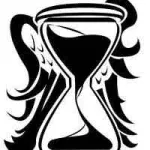Twacha Pal - Skin Clinic & Cosmetology Centre 4.5
Dermatologist Clinic
About Clinic
It is important to us that you feel comfortable while visiting our office. To achieve this goal, we have staffed our office with caring people who will answer your questions and help you u...read more
Clinic Timing
Clinic Location
Videos
Hi,
I am Dr. Sangeeta Verma. I am a practicing dermatologist and cosmetic dermatologist. So today I will be telling you about PRP therapy or called as the Platelet Rich Plasma therapy. Why it is done? It is done to repair the cells whether it is an ulcer, hair or skin. For skin it is done to rejuvenate the tissue. For hair it is done to restore the hair follicles. For ulcers, it heals the ulcer. In the beginning I will briefly tell you about the blood. What is blood composed of? Blood is composed of RBC, WBC platelets and plasma. Plasma is the fluid in which all these cells are present. What are platelets? Platelets are the cells in the blood which helps in the repair of tissues wherever the damage is done. They release growth factors and they help to build the tissue. What are the precautions which we have to take before going for PRP therapy? What all are the people who cannot take PRP therapy?
Those who are completely bald or those who are chronic smokers or alcoholic, those who are on blood thinners, those who suffer from any medical condition like chronic skin or liver disease or any metabolic disorder or any blood disorder. These people cannot go for PRP therapy. In PRP therapy, we take out blood from the forearm, from the vein. Then it is centrifuged in a machine. The centrifugal force is so much that the heaviest particle settles down at the bottom. RBCs followed by WBC and then platelets. So the uppermost layer which is the plasma can be thrown out because it doesn't have any platelets and it is called Platelet Poor Plasma. Followed by the platelet-rich plasma.
This is the solution which we inject into the patient. We anesthetize the area first. It can be done by using any kind of spray or we can also give nerve blocks or simple with the help of a vibrator. After anesthetizing we disinfect the area and then we give the PRP insulin syringes. After that we can mix it with the microneedle called dermaroller also and this creates microchannels which damage the tissue and which attracts platelets to that surrounding area and which helps in repairing the damage. Any risk or side effects of PRP? There is only mild tenderness or soreness or just mild pain which goes away as soon as the procedure is done. It is minimally invasive procedure requiring just only injections. This PRP therapy takes around 60 to 90 minutes overall and then the patient is free to do any activity which he wants to do. Generally, 3-8 sessions are required and which are covered up within a year. This is followed up by high maintenance as per the need. So this is in short about the PRP therapy. I hope you could understand.
Thank you!

